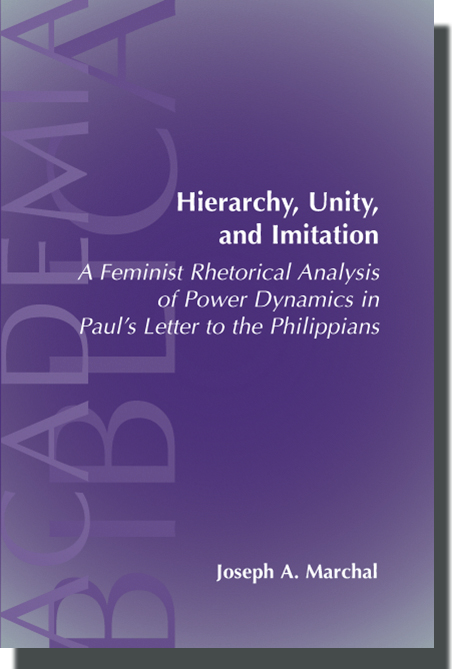
$42.00
Typically Paul’s letter to the Philippians is seen as joyous and relatively “harmless.” Yet distinctive features of Paul’s arguments—his appeal to unity and use of military and ancient patronage imagery—have troubling aspects, demonstrating the distinctly hierarchical nature of Paul’s rhetoric as he attempts to construct an authoritative position for himself in the eyes of the community. By attending to the power dynamics that inhere in the argumentation of Philippians, this feminist rhetorical analysis reevaluates the relevance of Paul and Pauline interpretation, highlighting a new set of hermeneutical options for the study of Philippians. In addition to examining the rhetorics of interpretation, this work focuses on the critical issues of gender and of colonial and military status, in particular by considering the roles of Euodia and Syntyche and civic and military images in the letter. It thus serves as an illustration of the relevance of feminist approaches toward both biblical literature and biblical interpretation.
Marchal takes seriously an analysis of both the text and contexts. The opening chapters suggest ways to resituate our approaches to biblical texts in terms of scholarly assumptions and ancient settings. Disciplinary questions about procedure, social location, and use of classical sources are all addressed with suggestively novel outcomes. Another attractive feature is the manner the project treats the letter as a series of arguments. Implementing the work of the New Rhetoric allows for a focus upon the function of the letter’s rhetorics, rather than simply the form. The priority on function allows easier assess to questions of power, and, as a result, could prove more relevant to a range of reading groups. This choice also means that many of the descriptions of the arguments are more “common sense” for a less-specialized audience, as the study avoids the jargon of the interpretations that implement ancient terminology from Greek and Roman rhetorical handbooks.
Joseph A. Marchal teaches in the religious studies department at California State University, Northridge, after teaching the last several years at Austin College, Colby College, and St. Mary’s College of California.
